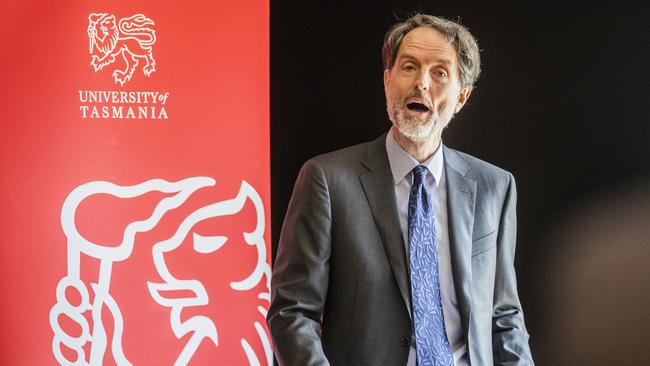Tasmania’s future as the gateway to Antarctica ‘at risk’ after funding announcement
New federal funding for Antarctic research has been described as “a slap in the face” for Tasmania, with a mainland university receiving more money than UTAS.
Politics
Don't miss out on the headlines from Politics. Followed categories will be added to My News.
Fears are growing over Tasmania’s future as the gateway to Antarctica following a federal funding announcement.
On Tuesday, Federal Education Minister Dan Tehan announced $56 million for a New Australian Research Council initiative to support some of Australia’s best researchers and scientists.
The University of Tasmania will receive $20 million over three years to conduct research into changes occurring in the Antarctic and Southern Ocean, to be conducted in collaboration with 41 research partners.
However, Melbourne’s Monash University will receive $36 million over seven years to “deliver unprecedented research capability working with 29 research partners and collaborating universities”.

UTAS vice-chancellor Rufus Black said the decision splintered Australia’s Antarctic science capacity, and although the funding for UTAS would support fundamental climate science, Antarctic research was in danger.
“What we really need is one clear national science agenda and funding to support it, and of course it should be driven out of the home of Antarctic science here in Hobart,” he said.
“What we’ve ended up with is a disconnected set of funding. We don’t yet have the national science plan for Antarctica and we have funding that is now unconnected on different time horizons and it lacks certainty.”

Tasmanian Greens Senator Peter Whish-Wilson slammed the decision.
“While any new funding for Antarctic, Southern Ocean and climate science is welcome, the ARC funding announcement has dudded Tasmania as Australia’s Antarctic gateway, and presents significant uncertainties for Tasmanian scientists, their communities and our economy going forward,” he said.
"This program is critical to monitoring and tackling our climate emergency and this announcement presents significant cause for concern.”
Mr Whish-Wilson said Tasmania’s gateway position was at risk unless funding could be increased.
Tasmanian opposition TAFE and university spokeswoman Michelle O’Byrne questioned why the bulk of the new research funds had been handed to a mainland university.
She said it was a “slap in the face” to UTAS that they would receive less funding.
Science and Technology Minister Michael Ferguson welcomed all and any investment into research, but acknowledged the lack of cash as "disappointing".
"UTAS is uniquely positioned to conduct Antarctic research and has proven expertise in this space," he said.
"It is disappointing that the ARC did not see fit to recommend more funding for the UTAS bid, which would have further bolstered Tasmania’s reputation for Antarctic and Science research excellence.
"However, the $20 million in funding supplements last year’s announcement that UTAS will receive $50 million over 10 years for the Australian Antarctic Program Partnership.
"In combination, these two announcements still ensure the University of Tasmania will receive the majority of Antarctic research on offer and remain the pre-eminent Antarctic Science research university in Australia.
"Tasmania will remain the gateway to Antarctica and there will be no delay to our plans to develop an internationally-recognised Antarctic and Science precinct at Macquarie Point."


